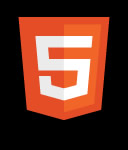
HTML5 To Be Ready by 2014
The hotly debated HTML5 standard is expected to be finalized in July 2014, the World Wide Web Consortium (W3C ) announced Monday.
 The HTML Working Group is expected to advance HTML5 to "Last Call," in May 2011, an invitation to communities inside and outside W3C to confirm the technical soundness of the specification. The group will then shift focus to gathering implementation experience. W3C is developing a test suite to achieve broad interoperability for the full specification by 2014, the target date for Recommendation.
The HTML Working Group is expected to advance HTML5 to "Last Call," in May 2011, an invitation to communities inside and outside W3C to confirm the technical soundness of the specification. The group will then shift focus to gathering implementation experience. W3C is developing a test suite to achieve broad interoperability for the full specification by 2014, the target date for Recommendation.
"Even as innovation continues, advancing HTML5 to Recommendation provides the entire Web ecosystem with a stable, tested, interoperable specification," said Jeff Jaffe, W3C CEO.
The Web has become a critical global resource that is transforming all industries, including mobile, television, gaming, publishing, and health care. Industries are turning to the Web as the platform of choice for integrating diverse devices, services, and business models. As the audience for the platform grows, so does the need for interoperability among the many technologies of W3C's Open Web Platform including HTML5, CSS, SVG, WOFF, various APIs, and more. Nearly all of these technologies are already in use, at varying degrees of maturity and implementation.
Because HTML5 anchors the Open Web Platform, W3C has started work on a test suite to ensure the high levels of interoperability that diverse industries demand. W3C invited test suite contributions from the community, which will enable software implementers to fulfill W3C's implementation criteria and make it easier to create content and applications. The testing effort will play an important role in the timely completion of the standard.
 The HTML Working Group is expected to advance HTML5 to "Last Call," in May 2011, an invitation to communities inside and outside W3C to confirm the technical soundness of the specification. The group will then shift focus to gathering implementation experience. W3C is developing a test suite to achieve broad interoperability for the full specification by 2014, the target date for Recommendation.
The HTML Working Group is expected to advance HTML5 to "Last Call," in May 2011, an invitation to communities inside and outside W3C to confirm the technical soundness of the specification. The group will then shift focus to gathering implementation experience. W3C is developing a test suite to achieve broad interoperability for the full specification by 2014, the target date for Recommendation.
"Even as innovation continues, advancing HTML5 to Recommendation provides the entire Web ecosystem with a stable, tested, interoperable specification," said Jeff Jaffe, W3C CEO.
The Web has become a critical global resource that is transforming all industries, including mobile, television, gaming, publishing, and health care. Industries are turning to the Web as the platform of choice for integrating diverse devices, services, and business models. As the audience for the platform grows, so does the need for interoperability among the many technologies of W3C's Open Web Platform including HTML5, CSS, SVG, WOFF, various APIs, and more. Nearly all of these technologies are already in use, at varying degrees of maturity and implementation.
Because HTML5 anchors the Open Web Platform, W3C has started work on a test suite to ensure the high levels of interoperability that diverse industries demand. W3C invited test suite contributions from the community, which will enable software implementers to fulfill W3C's implementation criteria and make it easier to create content and applications. The testing effort will play an important role in the timely completion of the standard.




















